
Jane L. Forrest, RDH, EdD, is a professor of clinical dentistry and section chair of behavioral science at the Ostrow School of Dentistry of the University of Southern California in Los Angeles, and director of the National Center for Dental Hygiene Research & Practice (NCDHRP). She has received several federal training grants, one of which included developing the NCDHRP and another on integrating evidence-based decision making (EBDM) into curricula. Forrest is an internationally recognized author and presenter on EBDM and is the lead co-author of two textbooks: Evidence-Based Decision Making: Developing Competence in EB Practice and its companion, The Faculty Toolkit.
A grant reviewer for the National Institutes of Health-National Institute of Dental and Craniofacial Research, Health Resources and Services Administration, and American Dental Hygienists’ Association (ADHA), Forrest also has served as a reviewer and task force liaison member for the Cochrane Oral Health Group and the United States Centers for Disease Control and Prevention. Among her honors, Forrest is one of the first recipients of the ADHA/Warner Lambert Award for Professional Excellence in Dental Hygiene, the Oral/Dental Hygiene Researcher Award presented by the Oral Health Research Group of the International Association of Dental Research, and the first dental hygienist recipient of the American Dental Association/ American Association of Dental Research Evidence-Based Dentistry Award. She is also a member of Dimensions of Dental Hygiene’s Editorial Advisory Board.
Why is research important to the profession of dental hygiene?
All true professions have a distinct knowledge base and dental hygiene is developing its own. Dental hygiene practice must be based on sound research and scientific information, and we need to develop our scholars at the graduate level to develop discipline-specific research that will grow our knowledge base. At an entry level, dental hygienists must be good consumers of research evidence, which means knowing what constitutes the evidence and how it is reported. Understanding research and levels of evidence allows us to better judge the validity and relevance of reported findings. By valuing and integrating good science with clinical judgment and patient preferences, we enhance our decision-making ability and maximize the potential for successful patient care outcomes.
Describe one of the most memorable research projects you have worked on.
I was part of the team that obtained and implemented the grant, “A Model to Link Dental Hygiene Practice and Education Through a Collaborative Research Center.” This included establishing the National Center for Dental Hygiene Research and a summer research institute training program. Through this grant, we gained consensus on the ADHA national dental hygiene research agenda, which then was used to guide research projects by dental hygienists from universities throughout the US who attended our summer program. The networking and pleasure of working with those who attended have continued for more than two decades. Many of those team members have since earned their master’s and doctoral degrees, advanced their careers into leadership positions, and, as scholars, contributed to our dental hygiene body of knowledge. This grant also served as a model for three additional grants, one of which was “Integrating an EBDM Approach Into Curricula,” the current focus of my work.
What advice would you give dental hygienists who are interested in working in research?
Go to graduate school—do not wait as long as I did. Each level of education will open many more opportunities for you in the research arena, as well as in other career areas. If possible, find a person already conducting research in an area that interests you and volunteer to help out—get some practical experience to see if you truly want to pursue research as a career. Find a research mentor, which is not as easy as many may think. The mentorship relationship goes both ways in that you each should benefit from the relationship. I have been very fortunate to work with several individuals who have guided me through phases of my career and the research process.
You are very involved in the National Center for Dental Hygiene Research & Practice. Explain its goals and why they are important to you.
Being involved with establishing the National Center, its initial training programs, and now the global dental hygiene research conferences has been very motivational. Over the years, the National Center’s Advisory Board has helped shape the mission and goals of the National Center. One change has been to recognize the value of practice and how it drives research, which is one reason why our center’s name was expanded to add “& Practice.” Our mission is to promote the health of the public by fostering the development, implementation, and dissemination of oral health research; establish an infrastructure to support dental hygiene research; and strengthen the scientific foundation for the discipline of dental hygiene.
Two of our goals are:
1. To increase awareness of dental hygienists’ contributions to multidisciplinary health care research.
2. To promote the translation of research evidence so that it is meaningful and useful in dental hygiene education and practice.
We continue to work toward achieving our mission and goals to advance our discipline, so that we promote scholarship and research that will establish dental hygiene as a true profession.
What do you hope the profession of dental hygiene will look like in 50 years?
Hopefully, it will not take 50 years, but we need to be truly independent through self-regulation of our practice and education standards. We are one of the only licensed professions regulated by another licensed profession, and this needs to end. We need to be fully integrated as members of interdisciplinary health care teams working in a variety of health care settings, including but not limited to clinical practice, public health, hospitals, long-term care facilities, school settings, research, and industry. We need to be prepared at an equivalent educational level as our counterparts to better establish ourselves as equal members of the team and as specialists in disease prevention and health promotion—recognizing that what we do can save lives. We should automatically be documenting and measuring outcomes in a structured manner so that when we learn what works best in given situations we disseminate that information growing our knowledge base. As our healthcare system evolves and disease patterns change, and disparities continue, we need to be prepared to address these challenges and be recognized for our contributions.
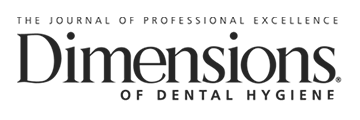
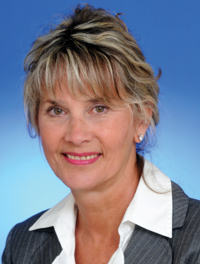
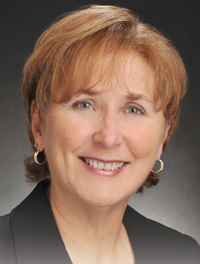
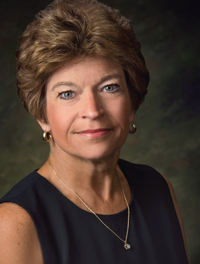
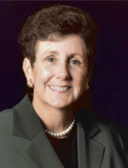
Good evening. I am Ayeni Stephen Oluremi, I a registered dental therapist from Nigeria. I am highly interested in research work. I Need a mentor.